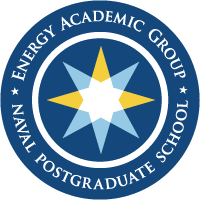EAG Announces the Master of Operational Energy Degree - Energy Academic Group

EAG Announces the Master of Operational Energy Degree
By Colleen McHenry, Faculty Associate-Research, Energy Academic Group
The Naval Postgraduate School’s Energy Academic Group (EAG) is proud to announce the Master of Operational Energy. The Master of Operational Energy (OE) is an asynchronous distributed learning (DL) degree program that equips graduates with the skills and knowledge needed to operate in a contested logistics environment and which will ultimately enhance the graduates’ effectiveness in the modern battlespace.
The OE master’s degree combines a sequence of three stackable graduate level certificates under its OE Certificates Program: Directed Energy, Refuel Logistics, and Unmanned Systems Persistence. The certificates focus on areas related to operations research, operational energy analysis, war and peacetime logistics, autonomous systems, and defense energy. The Program’s flexible design allows sponsoring agencies and students to achieve specific professional education goals by selecting a tailored combination of certificates. The OE master's degree is sponsored by Deputy Assistance Secretary of the Navy, Operational Energy (DASN OE) and is open to qualified U.S. military personnel and U.S. Government civilians, as well as international students and defense contractors, who are eligible for entry to NPS certificate programs. The Master of Operational Energy program must be completed within 5 years.
This academic offering meets the Department of Navy’s guidance on both the content and the structure of our offerings by providing high-quality and relevant instruction to the Naval Enterprise. This degree will encourage potential students to explore additional content-focused topics and broaden their understanding during this critical time.
The operational energy objectives address challenges associated with operating in the contested environment specifically developing a strong foundation in OE principles into Navy training and education. This stackable approach to learning demonstrates the Navy’s commitment to a modernized education program with obtainable learning objectives. Specifically, students will analyze gaps in the joint operational energy approach across all domains; conduct a formal assessment of energy Continued from page 1 requirements and constraints; support staff with information and provide guidance in the basic technologies, concepts, laws and assumptions associated with the use of autonomous, robotics, and unmanned systems; ensure that operationally employed logistics infrastructures satisfy the energy requirements of the supported systems; and analyze modeling solutions dedicated to risk reduction in contested environments.
LEARN MORE
EAG contact: Colleen McHenry at colleen.mchenry@nps.edu and visit this page.Quarterly Newsletter
Surge is published quarterly by the Energy Academic Group and covers a divese range of energy-related topics. View archive

